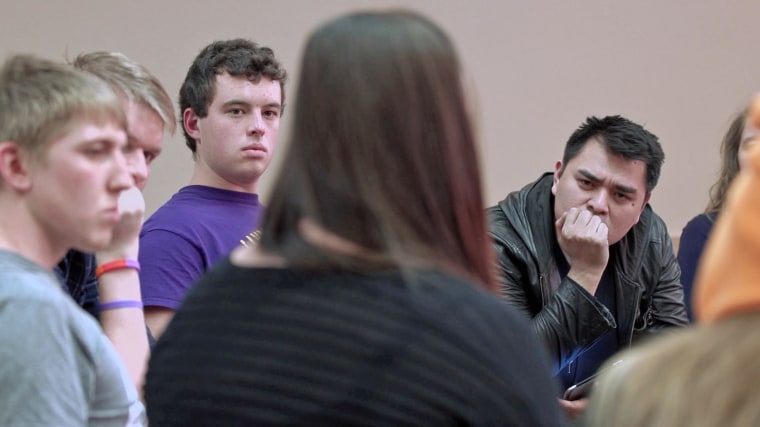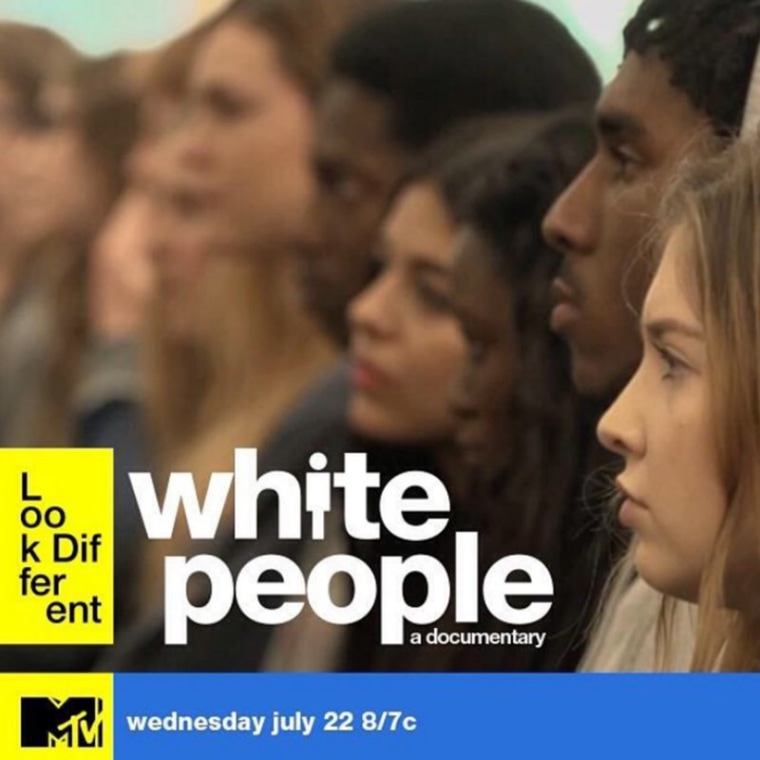Award winning writer and filmmaker Jose Antonio Vargas exposes the whiter underbelly of racial politics with his latest documentary, "White People", which airs on MTV Wednesday as a part of their “Look Different” anti-bias campaign. According to the film, the average white person’s friends are more than 91 percent white, so they kind of don’t have to.
In America, whiteness has long been the default or the unmarked case. Traditionally, being white has always been equated with being American and discussions of whiteness and how it operates are often only participated in by non-white people.
In "White People" Vargas probes white folks on who they are and how they see themselves in an increasingly brown America, providing a rare and compelling perspective on white Americans notions of race and what it actually means to be white.
Vargas masterfully drives the dialogue, partly because as a Filipino man he looks and feels like a non-judgmental moderator with no racial agenda. Yet he is still able to deftly challenge white folks’ tendencies to “other” anyone who is not them.
White people are rarely the minority, so the film has its best moments when it looks at whites who’ve left the comfort of the hive to interact with and dwell amongst communities of color.
"White People" is as funny as it is stirring. Many of its scenes give way to lighter comedic moments as white men and women from Winston Salem to Washington State ponder out loud, what is whiteness? One of the films more powerful moments includes a young black woman who becomes visibly upset by a white woman’s choice to describe blacks as ghetto: “What does that term even mean?” she asks tearily.

A white woman responds, “They say it every five minutes on Housewives.”
It was a great and terrible moment of how races clearly see each other without really seeing each other. We’re in proximity, but not in conversation. And this is basically the point, as Vargas sees it. “We’ve all got to get uncomfortable together,” he told audiences at a Los Angeles screening.
The project is a part of the LA Times new digital platform #Emerging US, which is taking a holistic view of our changing societal notions on race, immigration, gender and how we decide who is an American.
“Oftentimes when we’re telling the American story, we’re not telling the whole story,” says Ryan Eller, a white person and Executive Director of Define American, a story telling group created by Vargas in 2011, with the mission to use narrative to shift conversations on identity, immigration and citizenship in the U.S.
The United States is rapidly diversifying with Latinos and Asian Pacific Islanders being the largest and fastest growing racial segments respectively. Yet, white people are still able to inculcate themselves in completely homogenous communities where race or being an outsider (at least visually) aren’t really concerns -- which is why having Vargas show up in the homes and communities of whites, analyzing their elite status is fascinating.
The film point blank asks white Americans to own and consider their skin based privilege without any of the guilt or shame many claim they are forced to feel when asked to think about being white. It also highlights that when attitudes about race within a white community or family diverge, the result is usually to ignore the big racial elephant in the room.
Race is scary for white people and what better way to avoid conflict and discomfort than to dismiss race as having any role in society at all?
